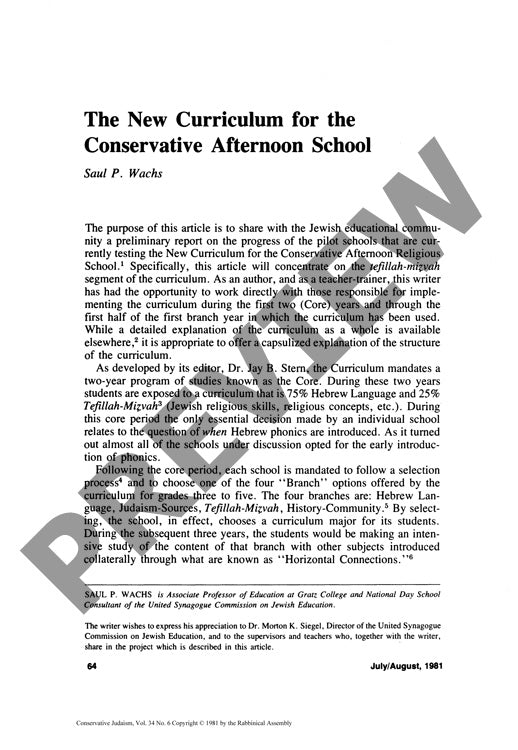The New Curriculum for the Conservative
Couldn't load pickup availability
Conservative Jewish supplementary schools have long struggled with student engagement and retention, yet a groundbreaking curriculum model suggests these challenges may stem from underestimating student capabilities rather than inherent program limitations. A structured "Core and Branch" approach, piloted across twenty Conservative Afternoon Religious Schools, demonstrates remarkable success in the tefillah-mizvah (prayer and commandments) segment. The model features a mandatory two-year core program (75% Hebrew Language, 25% Tefillah-Mizvah) followed by specialized three-year branch options. Of the initial forty applicants, twenty schools were selected for controlled implementation, with fifteen continuing participation after two years. Through bi-weekly teacher logs, monthly supervisor reports, standardized examinations, and regular seminars with educational personnel, the pilot revealed high achievement levels and satisfaction across all stakeholder groups. Teachers experienced professional and personal growth, while students displayed marked improvement in Hebrew reading, liturgical competence, and religious knowledge. Contrary to common concerns, structured curricula with clear objectives enhanced teacher creativity and morale. The concentrated study approach in fewer subject areas yielded superior achievement compared to traditional broad-based methods. While the research notes possible Hawthorne Effect influence on outcomes, the findings strongly indicate that focused, intensive curricula can transform educational outcomes and student retention in Jewish education.

More Information
-
Physical Description
-
Publication Information
Published
ISBN
-
Publication Credits
Saul Wachs

